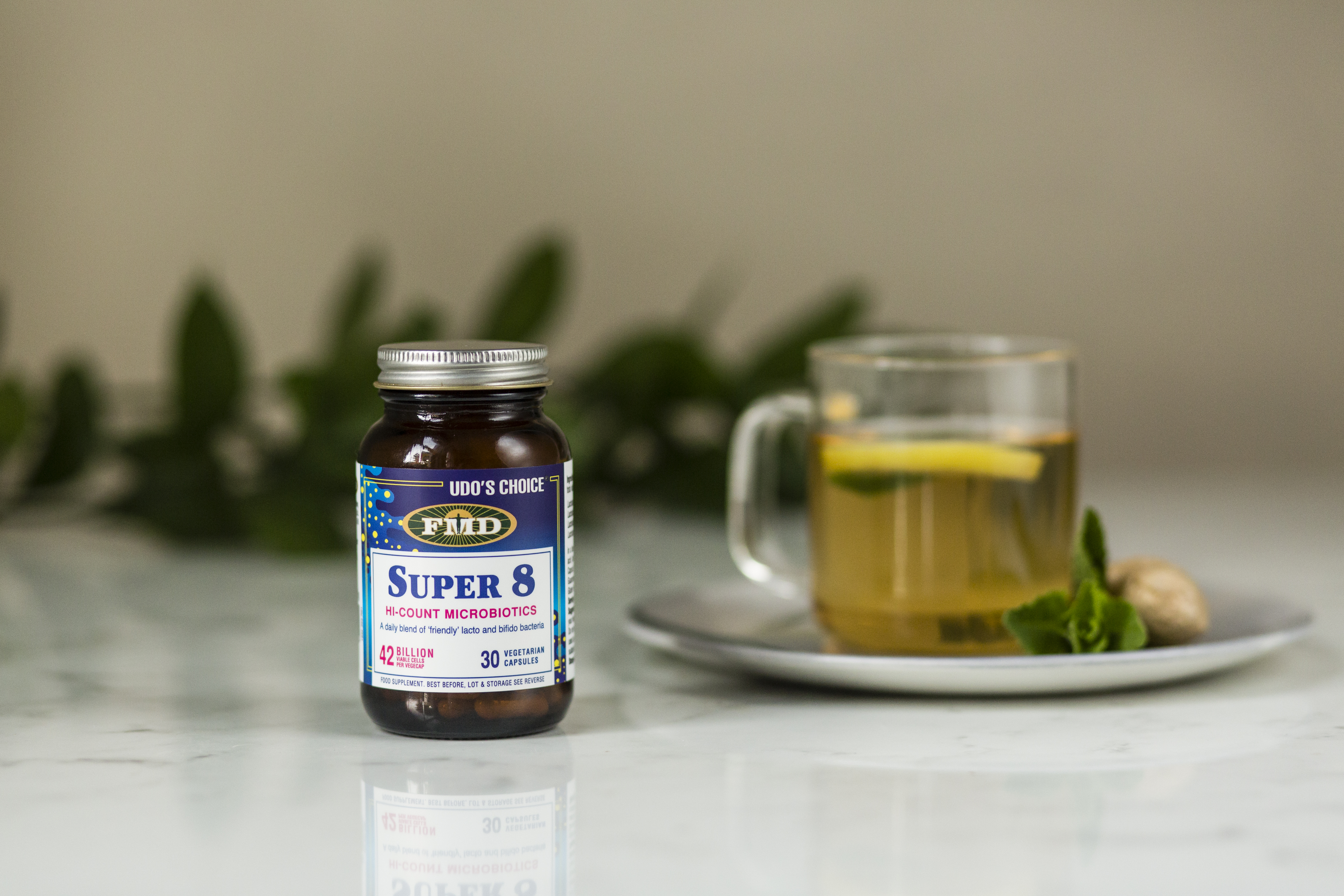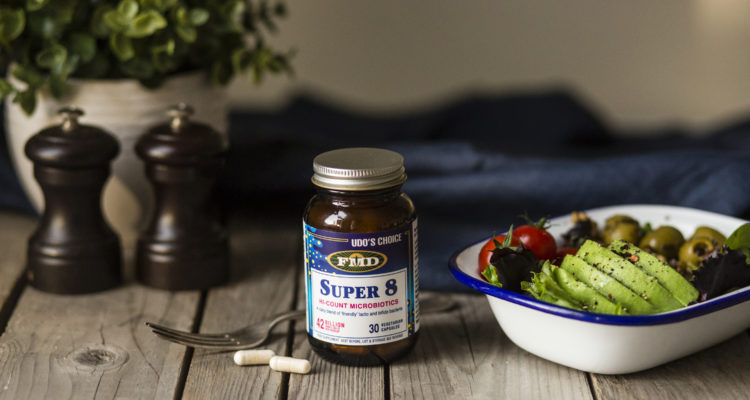Digestive Health and Immunity:
A healthy gut is vital for enabling the optimal digestion and absorption of nutrients from the foods we eat everyday. This in turn supports our energy levels, immune system and can even help to boost hair and skin health. Within the lining of the digestive tract are specialist immune cells to protect your body from infection and deal with bacteria ingested in the foods we eat to prevent them from entering systemic circulation and causing illness. In fact, up to 80% of your immune system is thought to reside in the gut. Maintaining optimal gut health can support the immune cells and help to ensure they’re at their most effective.
‘Dysbiosis’ is the term used to describe an overgrowth of ‘unfriendly’ bacteria in the gut and the most common symptoms include bloating, nausea, constipation, diarrhoea, excessive flatulence and stomach pains. Recurrent colds may indicate that there’s an imbalance in digestive health, affecting the immune system.
Antibiotics:
An estimated 110,000 people consume antibiotics daily in Ireland, peaking between December and March. (Source: Health Protection Surveillance Centre).
I strongly believe that that people should be more aware of the vital role of the gut in supporting overall health and the potential impact antibiotics can have on its normal functioning. Our digestive systems contain both ‘friendly’ and ‘unfriendly’ bacteria, both of which have their various functions in maintaining normal digestive and immune system health. Antibiotics either kill or slow down the growth of bacteria, which is obviously effective for an active infection but also kills the ‘friendly’ strains of bacteria, which work hard to help keep us healthy. ‘Friendly’ bacteria support normal digestive health, ensuring the gut absorbs beneficial nutrients from the foods we consume. A reduction in ‘friendly’ bacteria may lead to an imbalance, potentially disrupting efficient digestion and enabling the growth of ‘unfriendly’ pathogens and yeasts.
I’ve been taking microbiotics for about six or seven years now. I began when I first studied nutrition and really began to appreciate the importance of digestive health and how it relates to immunity and even ties in with emotional wellbeing too because the majority of our serotonin is made in the gut.

I was prescribed a course of strong antibiotics for a painful kidney infection last year and while the antibiotics were very effective, the dual impact of infection and medication left me feeling very low in energy. I focused on boosting my consumption of ‘friendly’ bacteria with Super 8 microbiotics, and soon started to feel much stronger. I always recommend them to family and friends taking antibiotics, as the quality of Super 8 is exceptional. I enjoy the confidence of knowing that they really do work well and my money is well spent on an effective microbiotic. Plus there’s solid scientific research to support the efficacy of the eight strains of ‘friendly’ bacteria found in Super 8. Indeed, research shows how effective certain strains of bacteria are, and these include Lactobacillus acidophilus, Lactobacillus rhamnosus HA-111, Bifidobacterium bifidum and longum, all of which are found in Super 8s.

My Top ‘Post Antibiotic’ Tips in Collaboration with Udo’s Choice Super 8:
1 Take time out
Don’t push yourself too quickly. Remember your body needs time to rebuild its reserves and regain strength.
Take more rest than usual. If you need to sleep longer, go to bed earlier.
Cut back on non-essential activities; they can wait until you are feeling 100%.
2. Embrace fibre-rich foods full of protective nutrients
Fresh vegetables and fruits are rich in dietary fibre, vitamins and antioxidants. Try eating seven to nine portions over the course of each day. Choose different colours so that you nourish your body with a variety of phytonutrients.
Eat a portion of complete protein at each meal, such as poultry, fish, eggs, beans, pulses or tofu.
Consume essential omega-3 fatty acids daily. Avocados, seeds (flax, chia) and oily fish (mackerel, salmon and sardines), are naturally rich in anti-inflammatory fats, with oily fish providing essential long-chain polyunsaturated fatty acids EPA and DHA.
3. Go ‘fermented’
Fermented foods are rich in ‘friendly’ bacteria. Sauerkraut is simple to make at home or buy kefir or kimchi in your local health store.
You could also take a microbiotic after your main meal as they’re an effective, easy way to get a ‘friendly’ bacteria boost. ‘Super 8’ by Udo’s Choice contains eight strains of ‘friendly’ bacteria which have been clinically proven to enhance gut health. It works for me.
4. Reduce or eliminate sugary foods
Processed foods often contain refined sugars to enhance taste. Excess refined sugar and processed foods may encourage the growth of ‘unfriendly’ bacteria, so aim to buy and eat fresh food.
If you have a sweet tooth, try eating strawberries, blackberries, blueberries or raspberries. Berries are rich in antioxidants and naturally low in fructose.
If you need a sweetener, try Stevia which is extracted from plant leaves and doesn’t impact blood sugar levels.

